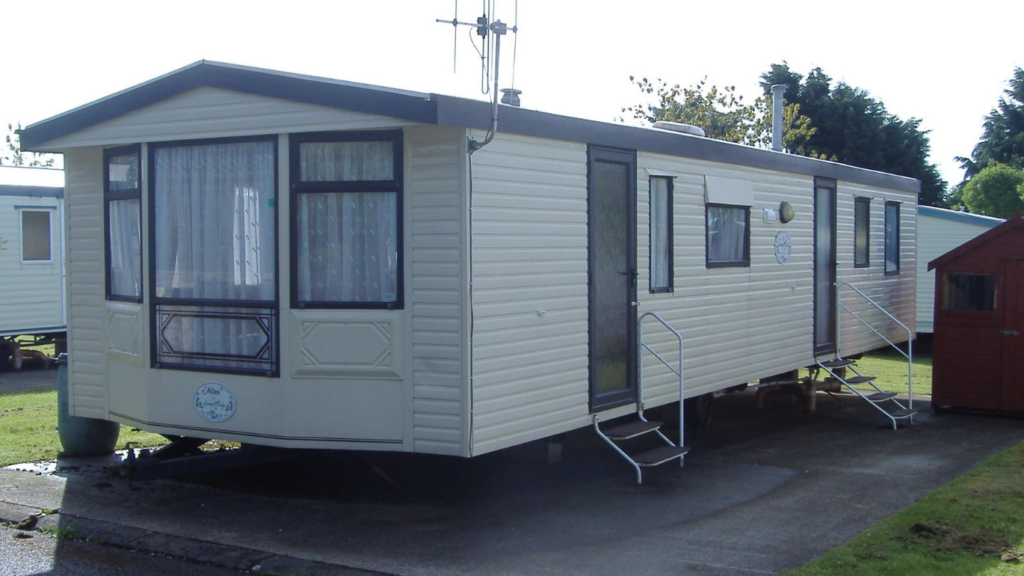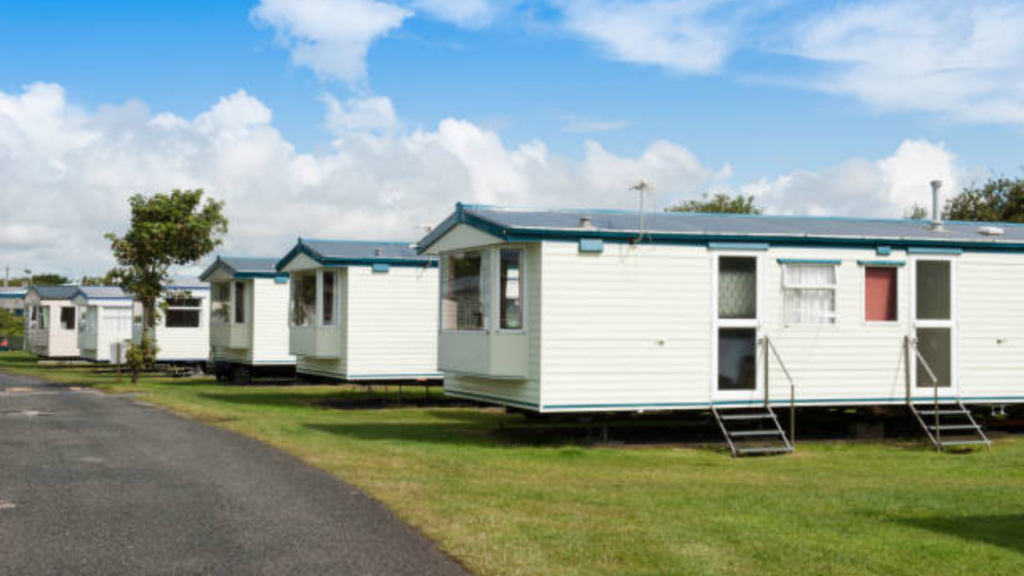
Young Americans nowadays are considering the option of Rent to Own Mobile Homes
for various reasons. Some are in search of a low-cost housing option that they can renovate and customize to their requirements. Others may see potential in the property for investment purposes, such as using it as a side source for a profit or using it as rental income.
We understand the question stuck in your mind before making the choice:
Why buy Rent to Own mobile homes when they know they go down in value?
This is because Considering the option to buy Rent to own a mobile home is still immeasurably better than having no home at all. Because who likes to be homeless? No One!
Honestly, in 2024 where housing is almost unaffordable for majority Americans; due to skyrocketing marketing prices of housing; except if you’re “self proclaimed millionaire as Kylie Jenner”.
The real questions that you should be focused on to get answers for are: Are you a first time home buyer? Are you troubled by financial obstacles, credit challenges, and intimidated by the cost of a traditional home purchase? Are you looking for a valuable opportunity to invest in buying a house? A mobile home – manufactured residence is the best choice !!!
They are built on new construction techniques but way less cost than systems/site-built homes. What’s keeping you in the thinking loop is how to finance your new mobile home. Or maybe you are looking for a rent-to-own mobile home, and want to explore your financing options.
In this blog we will try to answer your queries such as what exactly mobile, modular and manufactured homes are?. How are these solid, yet cost-effective housing investments, how to find right and affordable financing options.
What are Mobile Homes?

A mobile home is a prefabricated structure, built in a factory on permanently attached foundations before being transported to site. Used as permanent homes, or for holiday or temporary accommodation, they are often left permanently or semi-permanently in one place, but can be transported due to land-laws and legal reasons.
Types of Mobile Homes
Single-Wide Homes: Mobile houses that are smaller in size so more affordable. These are manufactured on a one-unit-foundation, making it a one-piece transportation structure.
Triple and Double-Wide Homes: As the name says, these are obviously double units in size, as these are constructed in two or three sections. The two/three housing sections are transported as two/ three housing blocks, later to be assembled on-site.
Park Model Homes: Also known as vacations cabins or cottage houses, these are smaller size prefabricated houses; most popular for vacationing.
Modular Homes: These are not actually “mobile” homes, as they are partly built in factories and assembled on the site . They have higher construction standards in comparison to other mobile homes.
Construction and Features
Mobile homes, or manufactured homes, have evolved significantly over the years. Here’s an overview of their construction and features:
Chassis and Frame: Mobile homes are built on a steel chassis or frame, which provides structural support and allows for transportation to the home site.
Flooring: The floor of a mobile home is typically constructed using materials like plywood or oriented strand board (OSB). It provides a solid foundation for the rest of the home’s structure and is designed to support the weight of furnishings and occupants.
Walls: Mobile home walls are usually constructed using lightweight materials such as vinyl, gypsum, or paneling. These materials are chosen for their durability and ease of installation. Insulation may be added between the wall studs to improve energy efficiency.
Roofing: Mobile home roofs are often pitched to allow for rain runoff and may be constructed using materials such as asphalt shingles, metal panels, or rubber membrane. Proper roof insulation and ventilation are essential to prevent heat loss and moisture buildup.
Windows and Doors: Mobile homes are equipped with windows and doors made from materials like vinyl, aluminum, or fiberglass. These fixtures are designed to be energy-efficient and may include features such as double-pane glass and weather-stripping to prevent air leakage.
Plumbing and Electrical Systems: Mobile homes have plumbing and electrical systems that are installed during the manufacturing process. These systems are designed to meet building codes and may include features such as PVC piping, copper wiring, and circuit breakers for safety.
Interior Features: Mobile homes often feature a variety of interior finishes and amenities, including drywall or paneling on the walls, carpet or laminate flooring, and cabinets made from wood or laminate. Appliances such as stoves, refrigerators, and HVAC systems are typically included and may be powered by electricity or propane.
Exterior Finishes: The exterior of a mobile home may be finished with materials such as vinyl siding, aluminum siding, or fiber cement board. These finishes are chosen for their durability and resistance to the elements.
How much does a rent-to-own mobile home cost?
A figure represented by the U.S. The Census Bureau can give you an idea about the average sale price of a newly manufactured mobile home. It was $112,000 in November 2021. Whereas, the average sale price of a new traditional house was $400,600. That is quite a big difference. The average cost of a manufactured home by size is:
- Single-wide: $57,600 t0 $64,000
- Double-wide: $110,300 to $122,900
- Triple or multi-wide: $81,900 to $177,000
If you’re considering ‘lease with the option to purchase’, then you may come across “option consideration”, this is the fee that gets the buyer the right to buy the home later. Although the fees can vary, from deal to deal, a usual range can be 2.5%–8%.
So it’s no secret that for many Americans’ the dream to own a house came true with the invention and availability of mobile homes. Next, you have to look for Rent Premium: this payment is above the rent you’ve paid, and will be counted as CREDIT for purchase price. Lastly, the down payment, it is payment other than option fee, but with each agreement terms may vary.
How Renting to Own Mobile Homes Works?

Lease with Option to Purchase
One agreement in Rent to Own mobile homes is a lease agreement. This comes with an option to purchase. This lease contract basically gives the tenant/renter the right to buy the manufactured housing unit, but not the obligation.
So, at the end of the lease agreement, if you decide you do not want to purchase the manufactured home, then you can simply walk away.
Lease with Purchase Agreement
Another agreement/contract, on rent to own a mobile home, is lease agreement with a purchase agreement. In this case the tenant is legally under obligation to purchase the mobile/manufactured home as per the signing of the rent-to-own contract.
In this rent-to-own agreement contract, as a tenant/buyer it is important to ensure that a third-party inspection happens, so there is information left out. This is almost like pre-approval for a mortgage.
How do I find rent-to-own mobile homes?
There are multiple pathways through which you can fund your rent to own a mobile home Like getting in contact with an experienced real estate or buyer’s agent, or finding a brokerage with a rent-to-own program. They can help you with market terms and agreement details, and also help you know about unfamiliar legal and financial terms.
Secondly you can contact a seller and explore the foreclosure market, or use a web service endorsed by trusted sellers and real estate agents. Another option that you may consider is referring to speciality portals; these are basically helping customers buy rent to own mobile homes.
Here are some names: Rent-to-Own Labs, Hidden Listings, and Home Finder. We highly recommend doing your own research too before reaching a decision. They typically charge a very small amount weekly or monthly.
What financing options are available for manufactured and modular homes?

Construction Loans for Modular and Manufactured Homes: Construction loans are basically short-term loans which fund the building of new houses. This is the category of construction loan that converts to the traditional 30-year mortgage as the manufactured home/modular/mobile home is sent then assembled at its permanent location.
FHA Loans: FHA (Federal Housing Administration) Loans are a recommended and viable choice for low- and moderate-income buyers; particularly if you are looking to buy a pre-existing home, and also for those buyers who want to buy the land and purchase a new systems-built ho
VA Loans: VA loans offered by the Department of Veterans Affairs, are also government-backed loans available to eligible service members, veterans, and military spouses. These loans can offer financing up to 100% (no down payment).
Pros and Cons of Mobile Homes
Before making the final choice do take into account of the pros and cons.
Pros
Affordability: Mobile homes are generally more affordable than traditional site-built homes.
Quick Construction: Manufactured homes are built in factories under controlled conditions, which can lead to faster construction times compared to site-built homes.
Customization Options: Many manufacturers have customization options, allowing buyers to personalize their homes to meet their needs and preferences.
Energy Efficiency: Modern mobile homes are often built with energy-efficient materials and appliances, which can help reduce utility costs for homeowners.
Flexibility: Mobile homes can be placed on leased land in manufactured home communities or on private property, providing flexibility for homeowners who may want to relocate in the future.
Community Amenities: Mobile home communities often offer amenities such as swimming pools, playgrounds, and clubhouse facilities, fostering a sense of community among residents.
Cons
Depreciation: Unlike site-built homes, which often appreciate in value over time, mobile homes tend to depreciate in value, which can make them a less attractive long-term investment.
Limited Financing Options: Financing options for mobile homes may be more limited compared to traditional mortgages for site-built homes, and interest rates may be higher.
Land Ownership: Mobile home buyers may face challenges finding suitable land for placement, as zoning regulations and land-use restrictions vary by location.
Maintenance: Mobile homes require regular maintenance and upkeep, just like traditional homes, including tasks such as roof repairs, plumbing maintenance, and exterior painting.
Perception: There can be a stigma associated with mobile homes, with some people viewing them as inferior to traditional site-built homes in terms of quality and desirability.
Limited Resale Value: Due to depreciation and the perception of mobile homes, resale values may be lower compared to traditional homes, making it more challenging for homeowners to recoup their investment when selling.
Overall, mobile homes can offer an affordable and flexible housing option for many people, but it’s essential to consider the potential drawbacks and do thorough research before making a purchase decision.
Tips to successfully Rent to Own mobile homes
An essential point to keep in mind is to negotiate terms and build your equity to make maximum realisation. Make planning to increase your equity, not just read the Agreement but understand it well, check the Property in detail, make clear terms.
Keep in serious consideration the target market and the economic conditions. Take consultation with a professional. They can provide practical insight for a successful transaction.
Should I consider a rent-to-own mobile home?
There is no black and white answer to this. We suggest you take into account your requirements, financial situation and above all the goal you want to achieve through buying a rent to own mobile home. Do thorough market research, take consultancy with the experts, do your own analysis of pros and cons and then make your final move.
